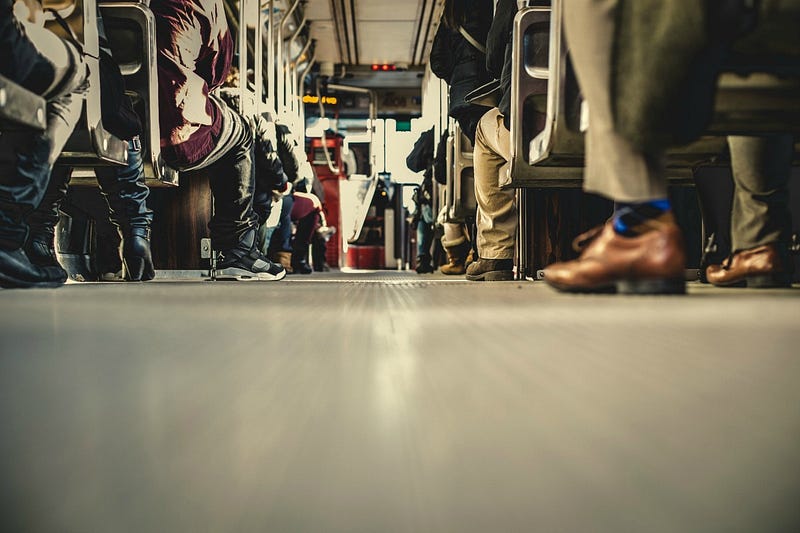
How to Follow Appropriate Cultural Guidelines When You Travel
It never happens intentionally, and it’s often something we don’t see until someone points it out:
Breaking cultural guidelines when we travel.
This can happen because of over-eagerness, lack of awareness, or simply the belief that the cultural differences between where we live and where we travel aren’t that significant. But no matter the reason, the result is always the same: a negative impact on the places we visit and the people we see.
For all of us wanderlusters out there, we need to remember that travel gives us so much — and we need to give back by maintaining respect and consideration for our destinations.
How to Follow Cultural Guidelines No Matter Where You Go
Have you ever had an event happen in your city or town that brought in new people for a short period of time? Was that followed by thoughts in your mind about “annoying tourists” and a desire for them to leave and never come back, regardless of the economic boost they brought to your town?
Now imagine accidentally causing others to feel that way when you visit their hometown or city…
It happens so naturally that it’s almost hard not to do it. We get so excited about seeing a new place that we tend to forget that actual people live there. We grab our cameras and hit the streets, barely able to contain our excitement, then we accidentally overrun the locals and interrupt their daily lives. But it doesn’t have to be that way. Follow the steps below to ensure that your travel has nothing but positive effects on the places you go.
Do Your Research — Before You Go
Planning a trip requires a ton of preparation: buying plane tickets and accommodations, planning your itinerary, figuring out how to pack everything you’ll need without breaking your back (or paying extra airline fees)…
…because there’s so much to do, researching the cultural guidelines of your destination can easily become the lowest priority. Don’t let it.
Before you step foot on that plane, do some internet research, ask people who travel a lot, read books. Do whatever works best for you to find out how you should interact with the people at your destination. Things you’ll want to think about are:
- What to do when introducing yourself to someone
- What to do before, during, and after meals
- What to do when visiting someone’s home
- How to act and dress in religious institutions
- How to act and dress in places of deep cultural significance
- How people of different ages and genders interact with one another
Remember, you’re visiting someone else’s homeland — that means the rules as you know them don’t apply. Just like if you were visiting someone else’s home, follow the customs of your destination, not your life, to ensure that you don’t unintentionally offend.
Find Ways to Minimize Your Impact
Just like ripples in a stream, we create waves in our wake no matter where we travel. We leave a footprint on the local environment, economy, and culture; and the more positive waves we make, the better.
Environmental Impact:
There are certain environmental impacts we can’t avoid, such as the carbon footprint of riding in planes and cars and the electricity used by the places we stay and visit. However, just like when we’re at home, we can do things like reuse and recycle as much as possible.
Staying at a hotel? Opt to have your linens cleaned at the end of your stay instead of every day. Are you frequenting coffee shops every morning? Bring your own mug or buy one there (bonus: coffee mugs make great souvenirs and are easy to carry). Sightseeing in a warmer climate? Walk or bike instead of drive — or take public transportation instead of cabs.
Whatever you do, think about ways you could make the activity more environmentally-friendly. Those small changes really do add up!
Economic Impact:
It’s common thought that tourism boosts local economies, but that’s not always true. Think about where you shop, sightsee, and eat. If these places are owned by larger chains or corporations, chances are the locals won’t see much of that money.
When it’s practical to do so, frequent local artisans, mom and pop shops, and inns or bed and breakfasts. You’ll end up having a more positive economic impact and you’ll likely have a more authentic experience of the place you’re visiting.
Cultural Impact:
No matter what you do, don’t assume that the culture in the place you’re visiting plays by the same rules as the place you’re from. Do your research and be mindful of what you do and say – and where you do it and say it.
Observe, Ask Questions, Challenge Your Stereotypes
One of the joys of traveling is that it broadens our horizons. Embrace this and allow it to challenge your beliefs. Traveling with an open mind will allow you to see worlds and interactions you never knew before.

Everywhere you go, observe, ask questions, and challenge your stereotypes. Wiping away your assumptions will give you a better (and more fun) learning experience — and it will help you be more mindful of the cultures you visit.
When done right, travel can be a beautiful thing for everyone involved (locals and travelers alike). Remain open-minded and mindful and you’re sure to have a positive impact on the places you go and the people you see — and end up a more enriched person from the experience!
Image Credits: Padurariu Alexandru, Matthew Wiebe, Morgan Sessions
